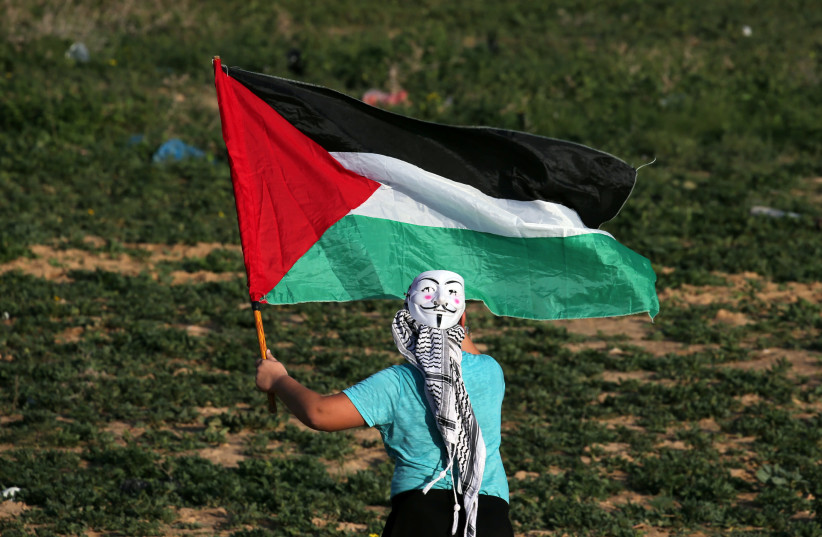by Michael Freund
Simply put, the idea of “Palestine” is dead and buried, and no matter how hard they may try, Western politicians will never be able to revive it.
 |
In recent weeks, various leaders of Western countries have publicly broached the idea of the unilateral recognition of a Palestinian state, asserting that the time has come to give the Palestinians independence, even in the absence of a negotiating process.
UK Foreign Secretary David Cameron and more recently French President Emmanuel Macron have floated this suggestion, despite the ongoing war in Gaza.
But what these esteemed statesmen have apparently failed to grasp is that the very idea of a Palestinian state is no longer geographically viable, morally acceptable, or even politically tolerable to the overwhelming majority of Israelis.
Simply put, the idea of “Palestine” is dead and buried, and no matter how hard they may try, Western politicians will never be able to revive it.
What killed Palestinian statehood?
To begin with, there is the simple and indisputable fact that the Jewish population in Judea and Samaria has thankfully grown to the point where no human power on Earth could possibly uproot it.


On February 16, the Yesha Council, the umbrella organization for the municipal councils in Judea and Samaria, published its annual report on the size of the Jewish population in the areas.
According to the document, as of January 1 there were 517,407 Jews living in some 150 communities in Judea, Samaria, and the Jordan Valley. With Israel’s total population estimated to be 9,842,000, that means that more than one out of every 20 Israelis lives in Judea and Samaria.
Just a decade ago, the number was 374,469, meaning there was an increase of 38% in just 10 years, which is a phenomenal achievement.
Despite incessant terrorism from Palestinian neighbors, along with hostile media coverage in much of the Israeli and international press, the Jewish communities in Judea and Samaria have grown and flourished.
No one in their right mind can possibly think that such a large population, spread out in so many communities throughout the areas, could ever be forcibly expelled. The roots they have planted are too deep to be torn away, stretching across three or even four generations.
And while many journalists like to portray the typical Jewish resident of Judea and Samaria as a Religious Zionist with a long beard and an even longer rifle, the data paint a very different picture.
According to the Yesha Council, 37% of the Jews in the areas are haredi; 37% are Religious Zionists; and 26% are secular.
Hence, the population cuts across socioeconomic and religious boundaries with a built-in diversity that only adds to its force and impact on Israeli society and politics.
Moreover, in the wake of the Oct. 7 massacre, there is now a widespread consensus within Israel across the political spectrum that a Palestinian state cannot and must not ever come into being.
A survey conducted by Direct Polls that was released in mid-January found that a whopping 74% of Israelis oppose the establishment of a Palestinian state. Nearly half of those who identify as supporters of Yair Lapid’s Yesh Atid party expressed opposition to such a state, as did 38% of those who voted for the decidedly left-wing Labor party.
In other words, there has been a tectonic shift in Israeli public opinion, with an overwhelming majority now against the idea of giving the Palestinians a state.
This is hardly surprising, given what occurred on Oct. 7, as well as the Palestinian Authority’s response to the massacre, which has reportedly included making payments to the families of Hamas terrorists who took part in the slaughter.
The problematic nature of the PA was underlined earlier this week when PA Prime Minister Mohammad Shtayyeh said that it is time for the world to forget about the Hamas massacre.
“One should not continue focusing on October 7,” he said at the Munich Security Conference.
While it may be easy for the PA premier to dismiss what Hamas did with a wave of his hand, for anyone with a heart it is not. The trauma of that experience, which saw the largest number of Jews murdered in one day since the Holocaust, will continue to resonate with Israelis until the end of time.
THE WIDESPREAD opposition to a Palestinian state was given expression by Israel’s unity government, which unanimously approved a declaration at a cabinet meeting this past Sunday that was as forthright as it was unambiguous.
“Israel utterly rejects international diktats regarding a permanent settlement with the Palestinians,” the cabinet decision read. “A settlement, if it is to be reached, will come about solely through direct negotiations between the parties, without preconditions. Israel will continue to oppose unilateral recognition of a Palestinian state.”
The statement rightfully pointed out that “such recognition in the wake of the October 7 massacre would be a massive and unprecedented reward to terrorism and would foil any future peace settlement.”
This was a courageous and stinging rebuke to all those in the international community who have called for recognition of a Palestinian entity, and it sent an unequivocal message that Israel will not countenance such a move.
In light of the realities on the ground in Judea, Samaria, and Gaza, along with the firm and unflinching opposition to a Palestinian state across the Israeli political spectrum, it is time for people such as Cameron, Macron, and like-minded loons in the US State Department to take a dose of some reality pills.
The time has come to say farewell to the idea of “Palestine” because it simply is not going to happen.
Michael Freund served as deputy communications director under Prime Minister Benjamin Netanyahu during his first term of office.
Source: https://www.jpost.com/opinion/article-788401
No comments:
Post a Comment